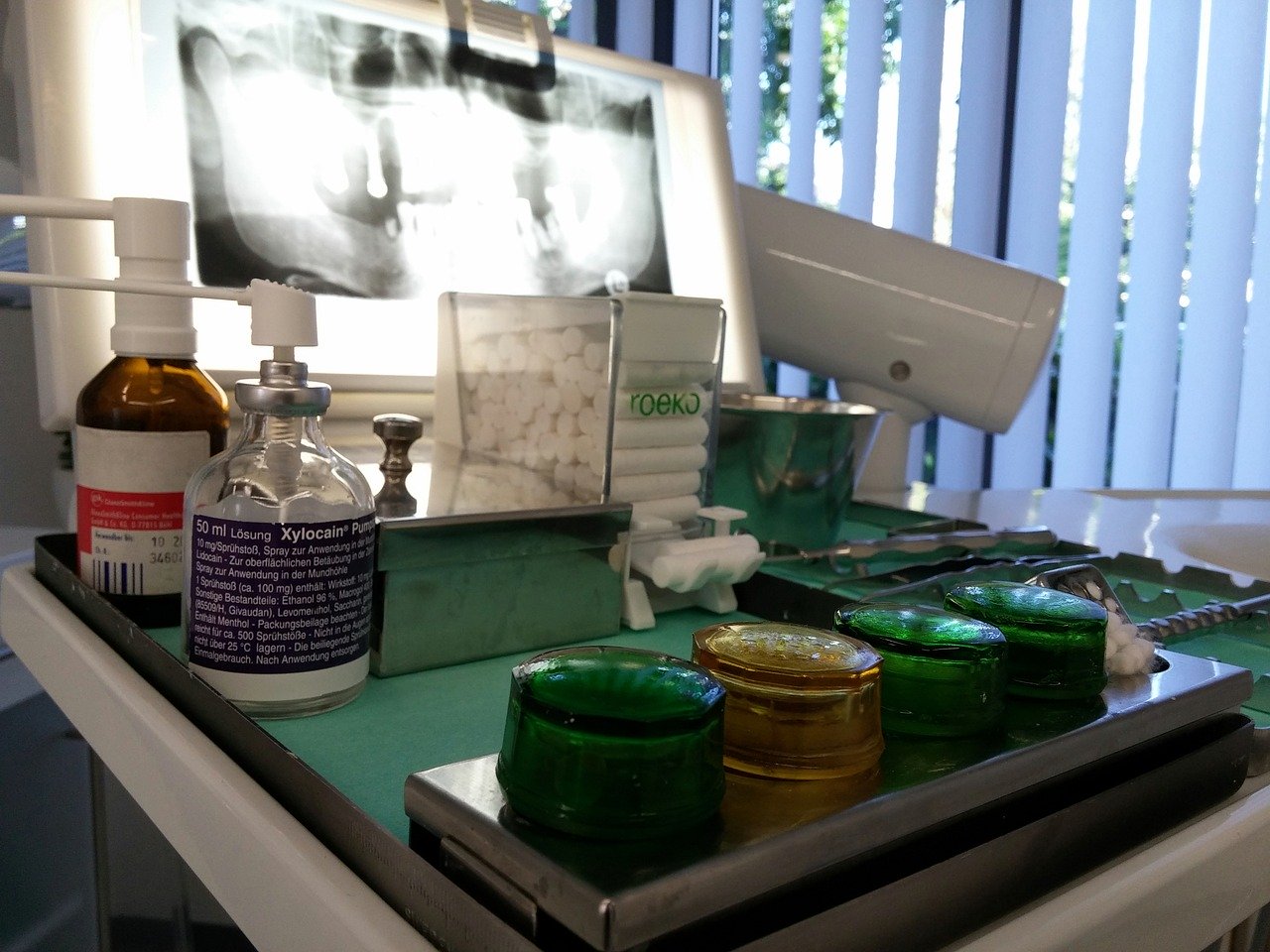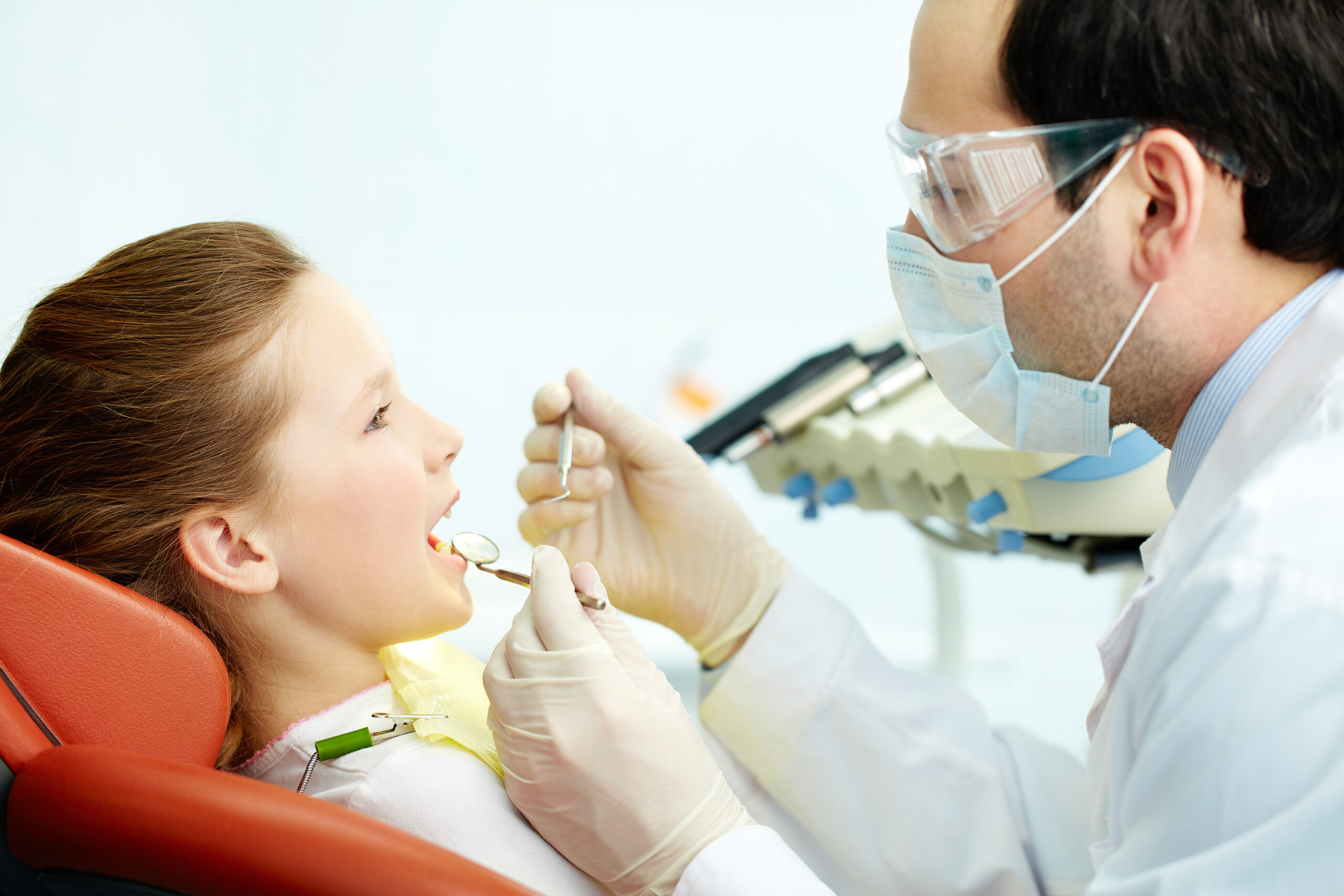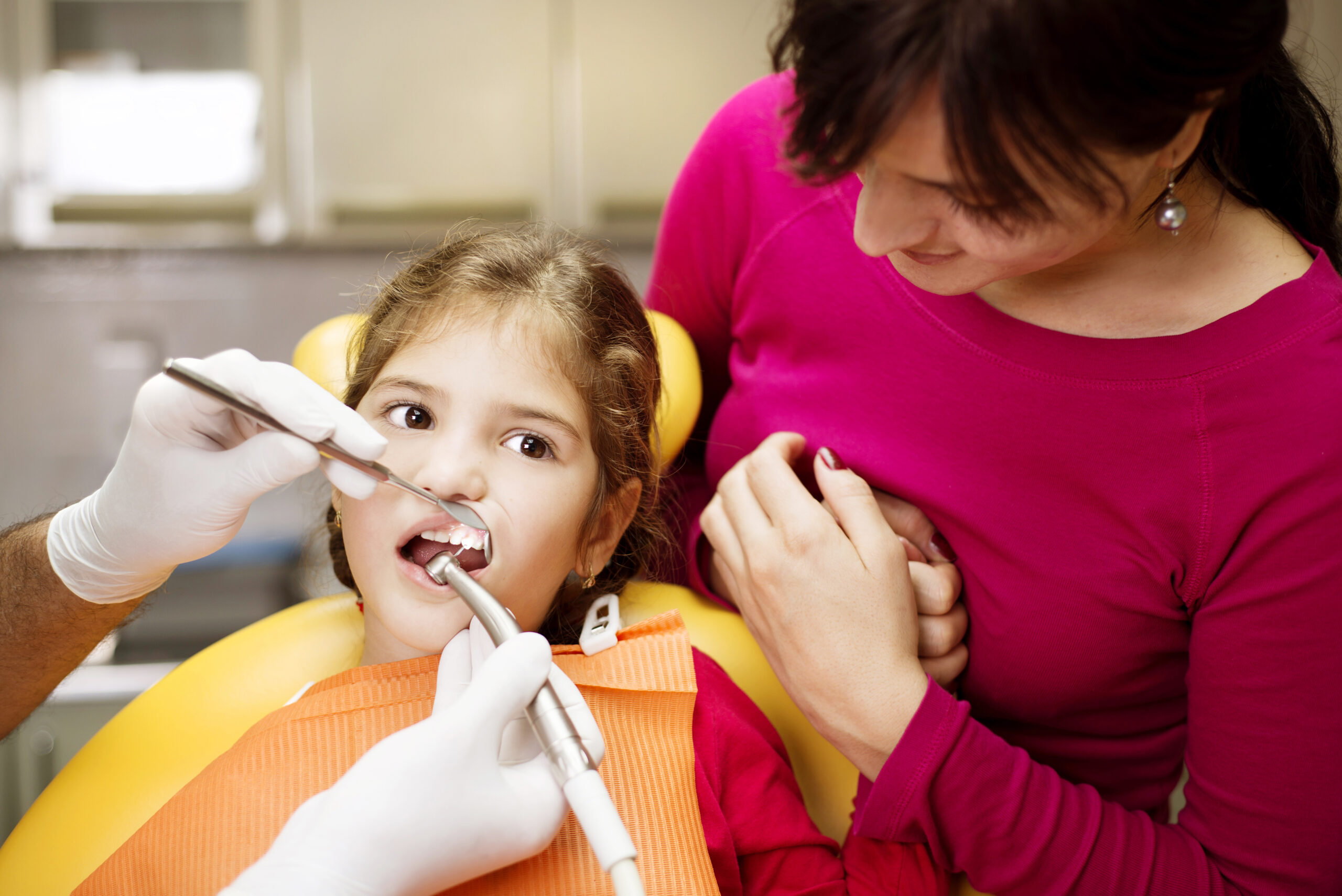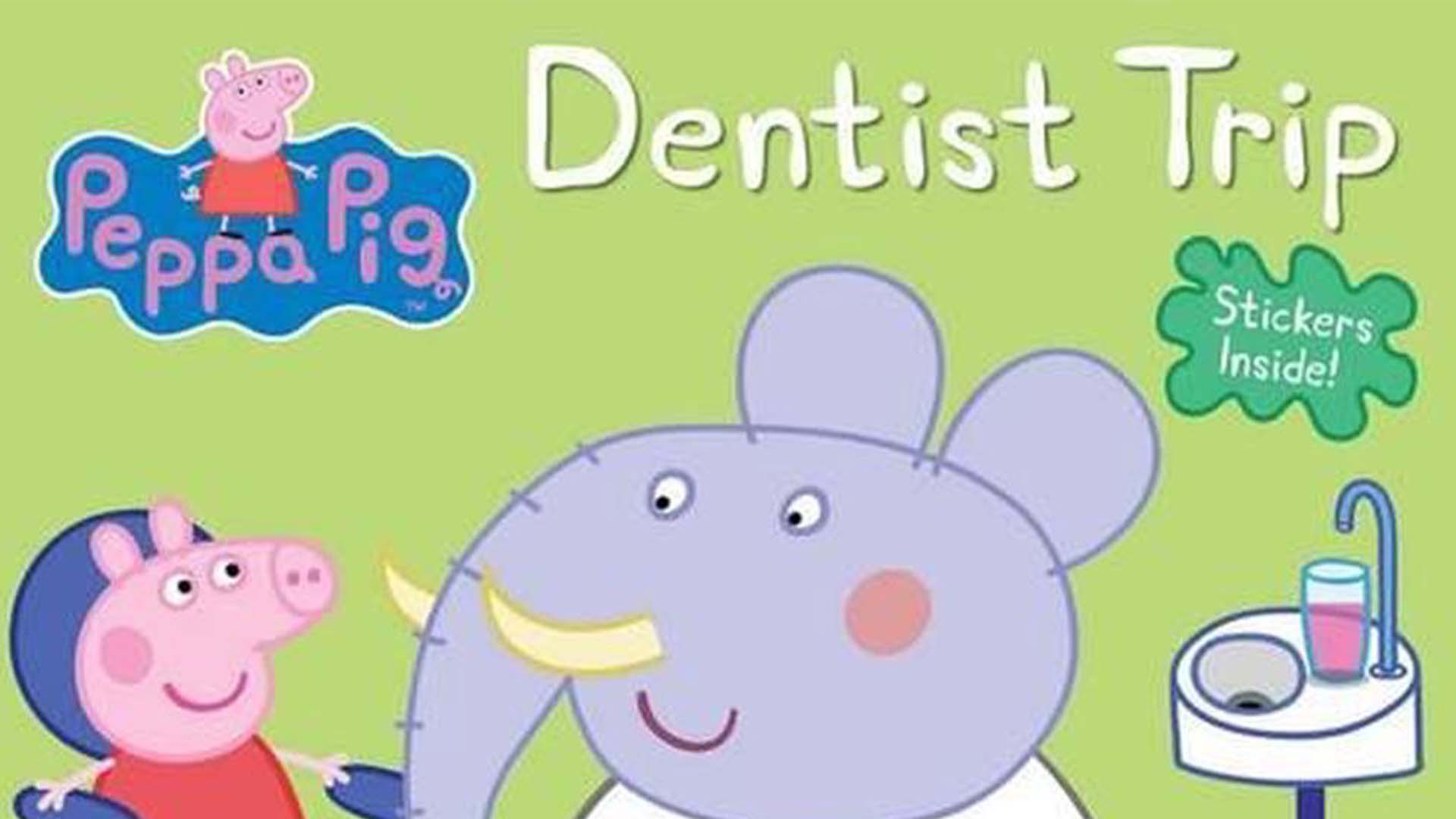
Emergency Dentists: When Your Child Has a Dental Emergency
March 06, 2020 ABC Children's Dentistry
Dental emergencies can be really scary, especially when they involve a child. Knowing what to expect and how to quickly address your child’s dental emergency can help you feel prepared and less anxious if you find yourself in this situation. After all, accidents happen and it’s good to be prepared.
In this article, we will discuss the Emergency dentists for children, as well as how to provide care until you can get to the dentist. Do you know what to do if your child cracks a tooth, knocks out a tooth, or breaks their jaw? Keep reading to learn all about what to do in those cases, and in other childhood dental emergency situations.
Emergency Dentists
Emergency dental care for children commonly includes urgent care to quickly relieve a child’s oral pain including:
- Toothache alleviation
- Emergency extraction
- Emergency repairs to cracked or lost teeth
- Pain management for wisdom tooth discomfort
What If My Child Cracks Their Tooth?
Children often play rough and falls are bound to happen. If your child falls and cracks their tooth, the first thing to do is contact your child’s dentist. Cracked primary teeth are not usually an emergency, but it’s always a good idea to have their dentist check it out.
If your child cracks a permanent tooth, you’ll need to make an appointment with the dentist as soon as possible. At home, rinse your child’s mouth with warm water and apply cold compresses to the area until you go to the dentist.
What If My Child Knocks Their Tooth Out?
Don’t panic if your child loses a tooth. That being said, it is critical that you go to the dentist as soon as possible. Many dentists have an emergency hotline you can call for dental emergencies like this. In this instance, a quick response can save your child’s tooth, so don’t delay.
If your child has lost a permanent tooth, reinsert it as soon as possible! Carefully clean the tooth and push it back into the socket as quickly as possible. It is important to remember that you have less than an hour to reinsert the tooth. After that, the chances of saving the tooth diminish greatly.
Your child’s dentist can take X-rays to assess the damage and ensure that the tooth is reinserted properly. Then, they can splint the tooth to the other teeth beside it. In this way, the damaged tooth is supported while it reimplants. Your child’s dentist may also recommend a soft diet in the weeks following the injury to allow the tooth to properly heal.
What Should I Do If My Child Loses a Filling?
If your child’s filling falls out, you need to make an appointment with the dentist to repair the filling. Fillings don’t last forever, so don’t be alarmed if your child’s filling comes out. Lost fillings cannot be reapplied, so it’s okay to toss it out.
Your child’s dentist will most likely be able to see you the same day that you call for an appointment because special time slots are kept for emergencies like lost fillings. It’s important to have your child’s tooth repaired quickly to avoid further decay caused by bacteria entering the hole.
If the tooth cannot be repaired with another filling, your child’s dentist can explain other available options, such as caps or crowns. In very rare cases, the damage may require your child’s tooth to be extracted.
What Do I Do If My Child Has an Object Stuck in Their Teeth?
First, try to remove the object gently using floss. Do not use a sharp or pointed tool to remove the object. A sharp object may damage your child’s teeth or gums and cause pain.
If you cannot remove the object from your child’s tooth with floss, you need to make an appointment with your child’s dentist or go to the emergency room for removal.
What If My Child Has a Broken Jaw?
If your child has broken their jaw, they first need an X-ray or MRI to determine the type of fracture and level of damage. In children, mild fractures of the jaw often heal on their own. Jaw fractures generally heal in a few weeks but may take months if they are more severe.
Your child’s dentist may recommend the following:
- Pain medication to help manage discomfort. A broken jaw can be painful.
- Antibiotics for preventing a bacterial infection if your child’s jaw bone pierced the skin.
- The jaw may be wired in place to keep it from moving so the bones can heal correctly.
- Your child may need surgery to return a severely fractured jaw to its proper position. Pins, screws, and plates may be needed to hold bones together properly.
- Surgery may also be needed to mend damaged tissue like nerves and blood vessels.
At home, you can help care for your child’s fracture by:
- Feeding your child purees and liquids.
- Ensuring that your child cleans their mouth at least four times a day.
- Applying ice to decrease swelling and ease pain.
- Having your child rest and play quietly while they heal.
- Not allowing your child to participate in sports while healing from a broken jaw.
- Preventing your child from putting pressure on the jaw while healing.
- Instructing your child to sleep on their back to alleviate pressure on the jaw.
How Can I Treat My Child’s Toothache?
Toothaches are painful and often difficult to relieve without a trip to the dentist. If your child has a toothache, you should make an appointment with their dentist to discover the source of the problem, as well as how to solve it.
While you’re waiting to see the dentist, there are some things you can do to temporarily manage symptoms of a toothache at home.
Pour plain warm water (avoid hot or cold water) with a teaspoon of salt to relieve the sensitivity your child may feel. Have your child rinse their mouth out with the salty water whenever they feel tooth pain.
A cold pack against the cheek may help with pain by decreasing inflammation. Over-the-counter pain relievers may also provide pain relief and help reduce inflammation.
Depending on how excruciating the pain is, a toothache may be a symptom of any of the following dental problems:
- Emerging teeth
- A cracked tooth
- Loose or missing fillings
- Tooth decay
How Can I Avoid a Childhood Dental Emergency?
Accidents can happen, but simple precautions can help your child to avoid a dental emergency. Here are some steps you can take:
- Schedule regular dental checkups to ensure your child’s teeth are healthy and strong.
- Caution your child to NEVER use their teeth to cut or open things, and to always use scissors instead.
- Tell your child to NEVER run with objects in their mouth, like toothbrushes or pencils.
- Block off dangerous areas, like stairs, to protect young children from falls that might damage teeth.
- Instruct your child to ALWAYS wear a helmet or mouthguard when participating in sports.
Does Childhood Tooth Trauma Cause Lasting Problems?
Some childhood dental emergencies have long-term effects. Sometimes, long-term damage is readily apparent. Other times, it takes months or years to reveal itself.
Childhood dental trauma can lead to inflammation that causes nerve damage. Sometimes this means your child may need a root canal or an extraction in the future.
Remember to tell your dentist about past dental emergencies so that they can properly evaluate your child’s teeth X-rays and properly manage any problems that may arise as a result of previous trauma.
In the end, the best way to protect your child’s smile is to see a dentist as soon as possible whenever your child experiences a dental emergency. Dental emergencies are quite common but can be upsetting. Avoid anxiety by establishing a relationship with your child’s dentist with regular dental checkups and cleanings. Then, you’ll be prepared for any emergency that might occur.
Frequently Asked Questions About Emergency Dentists
How Do I Get an Emergency Dentist Appointment for My Child?
Call your dentist’s after-hours emergency line to secure an appointment for your child in the event of a dental emergency.
How Do You Avoid Dental Emergencies?
The best way to avoid a dental emergency is to practice good oral hygiene and schedule regular checkups and professional cleanings with a dentist. Wearing a mouthguard during sports is another good way to avoid emergencies.
Can You Call 911 for a Toothache?
A toothache is not a 911 emergency. However, toothaches should not be taken lightly, as they are usually a sign of a more serious problem.
Can I Take My Child to the ER for Tooth Pain?
Caregivers in the ER cannot properly address tooth pain. It is best to contact your child’s dentist about any tooth pain your child is experiencing.
How Do You Stop a Child’s Toothache?
Rinsing with saltwater and applying cold ice to the area can \reduce pain and swelling until you can take your child to the dentist to address the cause of the problem.
Does Milk Help Toothache?
Milk is rich in calcium, which can strengthen teeth. It also contains casein, which strengthens enamel and reduces the risk of tooth decay.
How Do You Treat an Abscessed Tooth in a Child?
Make an appointment with your child’s dentist right away. Then, reduce swelling with ice and give pain medicines and antibiotics as directed to treat swelling and infection.
Is a Broken Baby Tooth an Emergency?
No, usually a broken baby tooth is not cause for alarm.
What Happens If a Baby Tooth Breaks?
Usually, a broken baby tooth is nothing serious. However, you should still make an appointment with your child’s dentist to address the issue and ensure there is nothing to worry about.
Why Are My Child’s Teeth Breaking?
Often, unaddressed tooth decay causes chipped or broken teeth in children.
What Should I Do If My Child Hits Their Front Tooth?
Remain calm in order to reassure your child. Place gauze over the area if there is bleeding and instruct your child to bite down to apply pressure. Offer your child cold water or a popsicle to reduce swelling and pain. Call your child’s dentist immediately.
How Long After Trauma Can a Baby Tooth Die?
A tooth can turn dark (i.e. die) two to three weeks after trauma.






